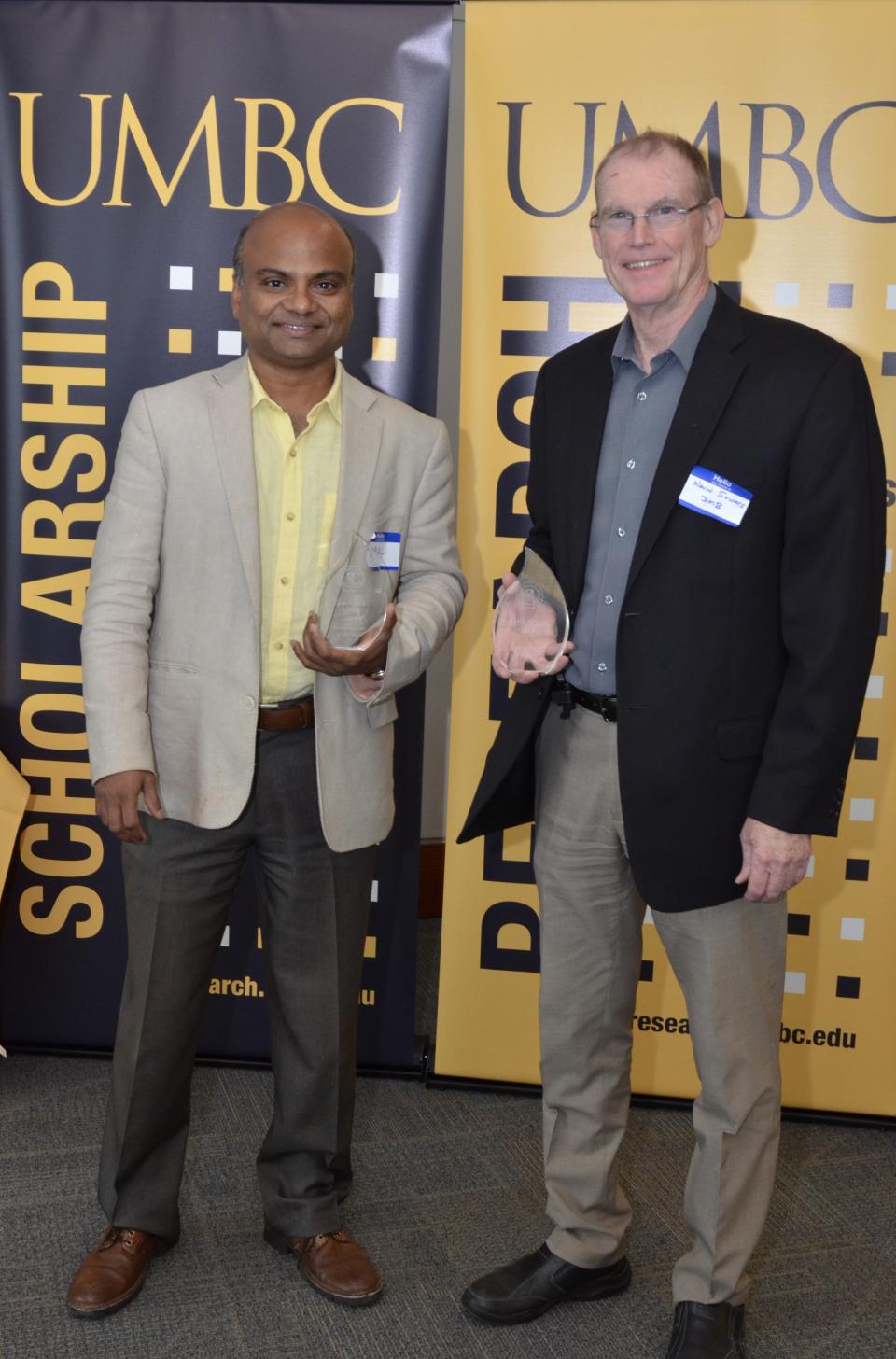With a New Grant
Optimizing the cleanup of contaminated sites with a new grant
Mar 24, 2021
 Using a group of specially selected microbes and activated carbon, the team has proven that they can remove polychlorinated biphenyls (PCBs) from sediments through a process called bioremediation. PCBs were banned in 1979 due to their toxicity, yet they remain in sediments and can enter the food chain, threatening both ecological and human health. Sowers and Ghosh founded the venture RemBac Environmental to apply their research to restoring contaminated sites and were named UMBC's Entrepreneurs of the Year in 2019 for this work.
Using a group of specially selected microbes and activated carbon, the team has proven that they can remove polychlorinated biphenyls (PCBs) from sediments through a process called bioremediation. PCBs were banned in 1979 due to their toxicity, yet they remain in sediments and can enter the food chain, threatening both ecological and human health. Sowers and Ghosh founded the venture RemBac Environmental to apply their research to restoring contaminated sites and were named UMBC's Entrepreneurs of the Year in 2019 for this work.To expand the applications of this lab work, an ecological modeler joined the team. Dr. Amar Wadhawan, Senior Environmental Engineer with Arcadis, will create models to integrate an improved understanding of materials for bioremediation with information about specific site conditions. This will help scientists and environmental engineers create targeted solutions for project sites.
The overall impact of this new grant will be to improve our fundamental understanding of the interactions of microbes and different surfaces and improve the process for cleaning up sediment and groundwater. Sowers said, "This project will enable development of a platform that combines tailored materials with microbial activity to optimize bioremediation of PCBs in different environments." With improved technology and modeling, remediation of Superfund sites and other contaminated areas will be easier and more effective, helping to create a healthier planet.
https://youtu.be/qEebYsiUlQM?list=PLfBpioLUD1PgfPKk6M0cFS7Ojg4IrEXoQ
Posted: April 1, 2021, 9:43 AM